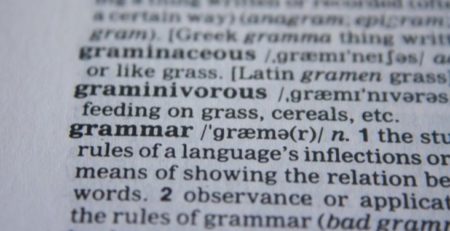Federal Resumes: Here’s why they’re unique and why you might need one
If you’ve ever considered a career in the public sector, you’ve probably noticed how intense the entire process is. Federal job applications are not for the faint of heart—even if you’re not new to them. Federal resumes are one of only two documents currently accepted by the government when applying for position vacancies. The other is the OF-612 (though it’s outdated and requires the same amount of work, if not more). Whether you’re just diving in or seeking to transition to a new position, you’ll need one. Here’s why:
Private-sector resumes should never be used to apply for Federal positions. Not only are their guidelines strict, but they can vary by agency which means your standard resume just won’t cut it. A Federal resume is easier to customize by vacancy and, at its foundation, should include the basics—less to change for each application. To make sure you get it right, it’s important to know exactly how your Federal resume should look and what it should include at a minimum.
Length. Federal resumes can be anywhere from 2-5 pages (most are around 3). You want to go back 10 years, 15 at most (with bullets). Older positions can be listed cleanly in an “Additional Experience” section sans bullet points to communicate your work history without adding unnecessary length. This recommendation was recently updated by USAjobs.gov and counters the previous suggestion that you include everything you’ve ever done. Since that’s not the case anymore, you’ll want to decide (working with one of our writers is helpful here) what you want to highlight, especially if you have a rather lengthy career history.
Some of the sections you’ll be expected to have on your Federal resume include: Contact Information, Summary/Objective Statement, Work History, and Education along with Certifications, Professional Development, Technical Skills, and Awards/Recognition if applicable. There should be a place for everything and everything should be in its place—neatly organized and not exceeding five pages.
Work Experience. Bullet points. Bullet points. Bullet points. Paragraph form is not recommended or even widely accepted. Federal agencies request clean, well-written bullet points that incorporate skills/actions/results with or without quantifiable metrics. They don’t need to know what your responsibilities were, they want to know what you’re going to bring to the table. This is especially important for those without previous experience in the public sector. So you’ve been in sales for 15 years? You’re a business analyst? A recent grad? A [superhero] stay-at-home mom looking to make a change? It’s important that you can translate what you’ve done or what you’ve learned into content that aligns with the vacancy. (Again, our writers are good at this. *cough* *cough*)
Formatting. Federal resumes are held to a much different standard than your modern two-pager. Government agencies and USAjobs.gov recommends clean and consistent formatting in plain text that makes it easy to read and edit as needed. With that said, a bit of color won’t hurt anyone if it’s your thing but keep it subdued and professional. Additionally, Federal resumes are written in chronological order and it’s not up for discussion. Resumes that don’t meet these basic formatting standards will likely be rejected.
Additional information. This might be where we see the most obvious differences between public and private-sector resumes. Your Federal resume must include all of the information required by the job announcement and if you don’t follow these guidelines, you won’t even be considered. This information includes:
Job Information: Announcement Number, Title, Series, Grade of Job (clients typically add this in during their application process since they may be applying to several, but we can help you with this too!)
Personal Information: Full Name, Mailing Address, Phone Numbers (including area code), and Country of Citizenship. Other more specific requests can include: Social Security Number, Veterans Preference, Reinstatement Eligibility, and Highest Civilian Grade held
Work Experience: Employers Information, Mailing Address, Hours Worked (per week), Salary, and a Supervisor Name and Contact
KSAs: As if this wasn’t already a lot, many announcements will also require you to submit KSAs. If you’re not familiar, a KSA is a supplemental document (though the information should be communicated in the resume itself). KSA stands for Knowledge, Skills, Abilities—and each position might require you to illustrate required strengths. Following the same format as your Federal resume, your KSA document should use short paragraphs that describe what you’ve done and bullets to highlight accomplishments. You’ll want to be sure you can show specific examples of how you’ve applied, developed, or demonstrated the KSAs the announcement is looking for.
It’s important to note that some announcements may emphasize the most important aspects of the jobs by assigning weights to each KSA and others will simply designate a particular KSA as Mandatory (M)or Desirable (D). It’s up to you (and your writer, hint hint) to decide which KSAs to focus on. Other vacancy announcements won’t make any distinction, so you should assume that all KSA’s are equally important. Here’s a great reference guide for putting together KSAs on your own: https://www.cdc.gov/hrmo/ksahowto.htm.
The Federal application process can be daunting but it doesn’t have to be overwhelming. Take your time, start slow, make lists, and gather the required information before diving in. Once you’ve got a baseline Federal resume written you can tailor it to each vacancy with little to no effort. If you’re feeling ready to take the plunge and tackle your Federal resume yourself, awesome. You can access a comprehensive reference guide to Federal resume writing here: https://www.archives.gov/files/careers/jobs/forms/resume-guide.pdf. If not, we can help. You can read more about our Federal Services here: https://careerlaunch.pro/federal-resume-services/.
 About The Author
About The Author
Sara Pokas
Director of Writing Services
When she’s not buried in her 2021 reading list or rewatching Parks and Rec for the 17th time, Sara spends her time crafting custom content and developing compelling narratives that engage readers from start to finish. She’s a seasoned writer, Leslie Knope wannabe, and a job search expert with valuable insight into what works in the modern market. Connect with Sara on LinkedIn.









